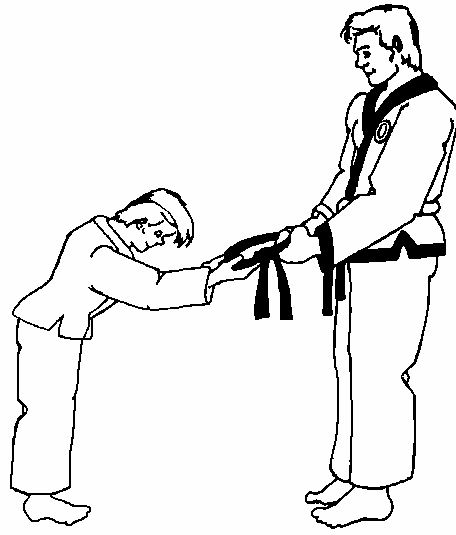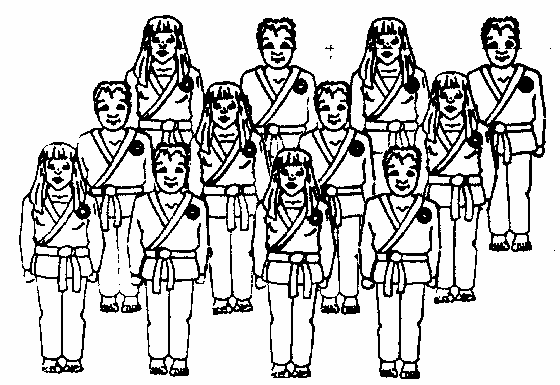10 Articles of Faith
1. Be loyal to one’s country: Sacrifice to fulfill your duty to your country and your people. This is based on the spirit of Hwa Rang.
2. Be obedient to one’s parent and elders: Children should be dutiful to their parents and parents should be charitable to their children.
3. Be loving to one’s husband or wife: From the mother’s body develops man’s happiness, as harmony and affection form love between the sexes.
4. Be cooperative to your brothers: Hold together with cooperation and concord.
5. Be respectful to elders: Protect the rights of the weak with courtesy and modesty.
6. Be faithful to your teacher: Learn the truth through practice of duty, loyalty, and affection.
7. Be faithful to friends: Honor friendship and be peaceful and happy with harmony and faith towards all mankind.
8. Face combat only in justice and with honor: Be able to distinguish between good and bad with fairness and rightfulness.
9. Never retreat in battle: Sacrifice for justice with capability and bravery.
10. Always finish what you start: Move to action with sureness and with hope.
In a structured society, laws are created to bring about order, keep the peace, and protect the individual members. In a perfect society this would not be necessary because its members would share a common set of guiding principles and ideals. Throughout history specialised groups have been formed whose membership was carefully selected and trained to ensure that they possessed the right character to uphold those ideals in service to the ruler and community as a whole.
One such group was the Hwa Rang (Flowering Youth), an elite warrior class created in Korea during the Silla Dynasty around the 6th century AD. The institution they formed was the Hwa Rang Do. They were generally young and well educated, coming from the noble class and with good moral character. As Hwa Rang they received instruction in literature and the fine arts and were taught the art of warfare. They were also given a code of ethics that were divided into five doctrines and nine virtues for correct living called Hwa Rang Do O Kae and Hwa Rang Do Kyo Hoon.
Soo Bahk Do adopted the five doctrines and expanded them into the Ten Articles of Faith that we train by. The first five are directly from the Hwa Rang code.
For historical reference, the nine virtues of the Hwa Rang were:
1. Humanity 2. Justice 3. Courtesy 4. Wisdom 5. Trust 6. Goodness 7. Virtue 8. Loyalty 9. Courage

















